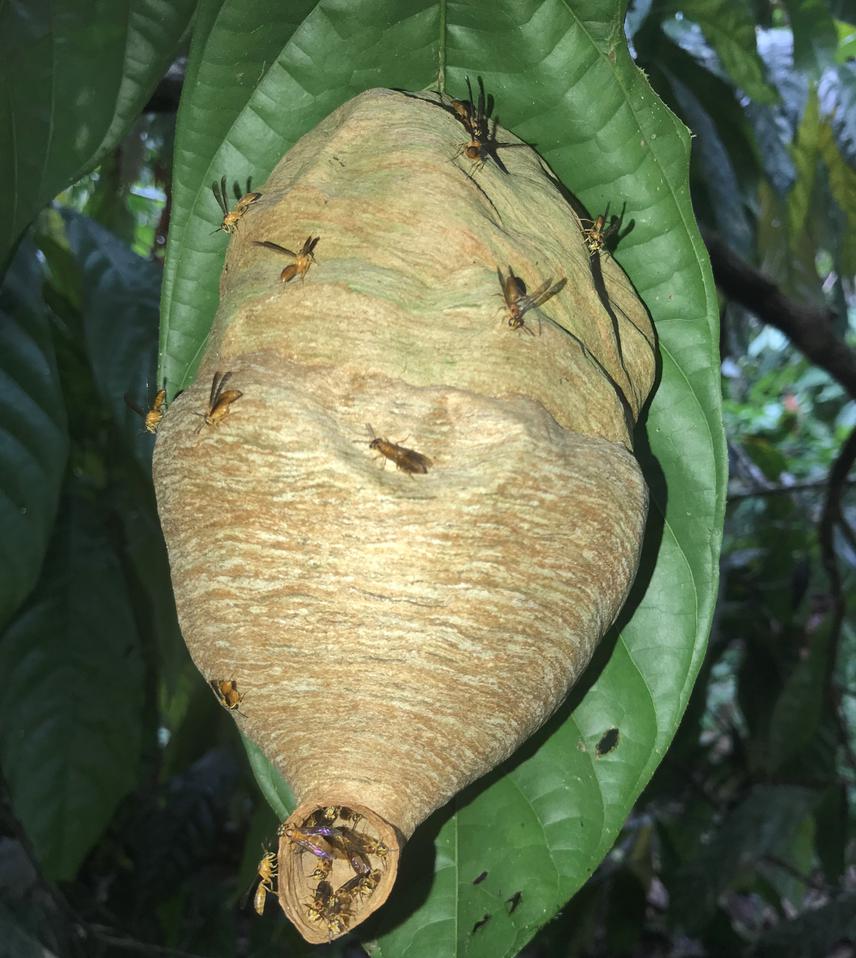Articles featuring the project.
José Victor Alves Ferreira
The aim of our research is to evaluate how cocoa agroforests and forest remnants of the threatened Atlantic Forest, inserted within different landscape contexts, affect the maintenance of different diversity components (alpha, beta and functional diversity) of bees and social wasps. Specifically, we intend to assess how each component of diversity is affected by:
1) changes in local vegetation structure in forest remnants and cocoa agroforests;
2) microclimatic characteristics (temperature),
3) the amount of surrounding native habitat and
4) matrix heterogeneity, at different spatial scales.

36668-1 Social wasp nest (Angiopolybia pallens) find in a cocoa agroforestry.
Insects’ surveys will be conducted using Malaise trap in forest remnants and cocoa agroforests distributed in 30 previously selected landscapes in the northeast region of the Brazilian Atlantic Forest (13º00’N 18º15’S). The region presents high relevance for biodiversity conservation and high rates of endemism yet exhibits one of the highest levels of deforestation across the entire biome. Every year, the remaining forests are being reduced and converted into anthropogenic land uses, especially pastures. The scenario is not worse given the existence of extensive cocoa agroforests in the region; a system responsible to boost the local economy. In addition, cocoa agroforestry has also great potential to maintain biodiversity, being classified as a biodiversity-friendly system.
By assessing both cocoa agroforests and forest fragments in this threatened biome we will be able to scrutinize the effects of deforestation and landscape modification, in addition to changes in local structure, in both environment types. Considering that bees are the main pollinators of native and cultivated plants, and that social wasps regulate the food chain in natural and agricultural systems, the development of this study is vital for the conservation of these keystone species. We expect that the measures proposed based on our outcomes can be adopted by cocoa producers to subsidize public policies aiming to maintain and/or enhance species diversity and, consequently, the ecosystem services provided by bees and social wasps. We will also involve the local community through lectures targeted to young students and will conduct workshops to cocoa producers, presenting the ecological and economic relevance of bees and social wasps for the delivery of ecosystem services and crop productivity.
Project Updates
5 Dec 2024
17 Jul 2025
Article featuring the project.